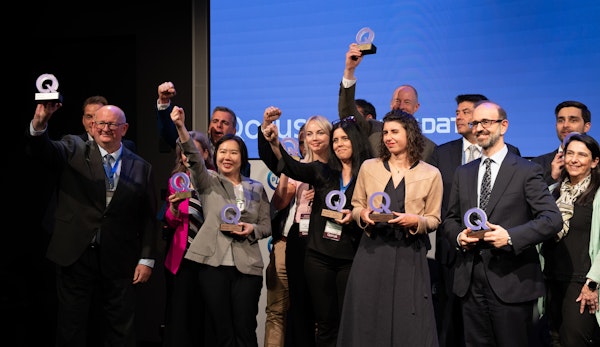
Insurers Towards Global Simplification of Processes
What do you consider to be the three main current challenges for insurers in terms of their processes/operations?
Insurance companies are currently dealing with numerous market challenges: Low-interest rates, Solvency II capital charges, ever-changing regulatory framework and higher administration and acquisition costs are among those issues. In this environment, the most logical way for insurers to create value is through technological efficiency of operations and their process and procedures. So, there are many challenges facing insurers in terms of their processes/operations, but some of the most significant ones are:
Streamlining business processes
Insurers are reviewing their current business processes and identifying areas where they can eliminate bottlenecks and inefficiencies in processes, as well as automate manual tasks.
Some Insurers also partner with Insurtech companies to access innovative technologies and expertise that can help them streamline their operations (innovative product development, underwriting, claims management, …) or with Fintech companies to offer new payment and financial management services to their customers.
The gap between digital channels and legacy operations
Technology is a booster in streamlining insurers' operations… but are legacy systems ready? Legacy systems are often based on older technology and, coupled with the fact that many insurers are operating in silos with different systems, make it difficult to adopt new technology. Strategic long-term success requires a retooling of legacy operational processes and infrastructure so they can effect real change in the three foundational areas where insurers now compete: efficiency, effectiveness and the customer experience.
By implementing digital platforms insurers are enabled to streamline their operations with digital insurance offerings with predictive analytics and digital data collection, Artificial Intelligence and Machine Learning, IoT, Social media data…..
The exploitation of customer knowledge
Insurers have access to a vast amount of data, including information about their customers, claims, and financial performance. However, this data can be difficult to manage (the insurance industry still leverages a lot of documents that require digitization!) and analyze effectively, which can make it challenging to make informed decisions and optimize processes.
The capabilities of new technologies (AI/ML,..) offer insurers the ability to leverage the vast amounts of consumer data available to create personalized experiences based on an individual's behaviour and habits, especially when purchasing insurance, meeting the high-speed demands of modern consumers. Additionally, insurers are enabled to access data faster, improving micro-segmentation to hyper-personalize processes (claims processing, policy administration, risk assessment…) and enhance the decision-making experience.
Thinking globally, what do you consider to be the current level of progress of insurers in their mission towards operational excellence?
The insurance industry as a whole is progressing in this area by adopting new technologies to manage their operations more efficiently and investing in training and development for their employees, as operational excellence won’t adapt to the new waves if organizations don’t change their way of thinking and business models. Insurers are also increasingly focusing on customer experience and using data analytics to inform business decisions.
Thus, insurers are changing …. and while it is true that, overall, there is still a lot of room for improvement in many areas, all insurance companies already share a common strategy on which to work in near future:
Serving customers better by anticipating needs and delivering the right service at the right moment
Unlocking business value from the explosion of data available through advanced digital technology
Streamlining all processes, including main operational process (actuarial, policy administration, financial, legal & regulatory, billing and payments, etc.)
In that mission to reach operational excellence, do you think the focus is only on the total automation of processes or is there something else that insurers can do to get there?
While automation can certainly play a role in improving operational efficiency and driving operational excellence, it is important to understand that it is not the only factor to consider.
Insurers must shift the mindset from automation focused on efficiency and cost savings to a global simplification of the operational processes with an organizational and technological vision.
Simplification must focus on customer needs, which will lead to less complex and more efficient products, processes and organization, which can be achieved by:
Process strategy, defining the vision and guiding principles for the company's operational model, through a target operating model for specific areas or segments of the value chain.
The application of lean to processes and teams at companies, that are differential for process re-engineering and the setup of continuous improvement functions. In team building, there are aspects such as structure, sizing, roles, and management that need to be reviewed to assess the possibility of change.
Adapting to digitalization and changing customer expectations using the new disruptive technologies as levers to drive improvements of journeys, processes, or specific activities, which have through more personalized and convenient service therefore improving the customer experience.
Finally, it should be noted that not all processes within the insurance sector are subject to automation. A focus on customer service is important to consider in an industry where some processes are very emotional for the customer being required human presence and/or personal attention because the customer expects real interaction.
Header photo by Sebastian Svenson on Unsplash
Subscribe to Our Newsletter
Get the latest insights about Global solutions for leading insurers on your email



